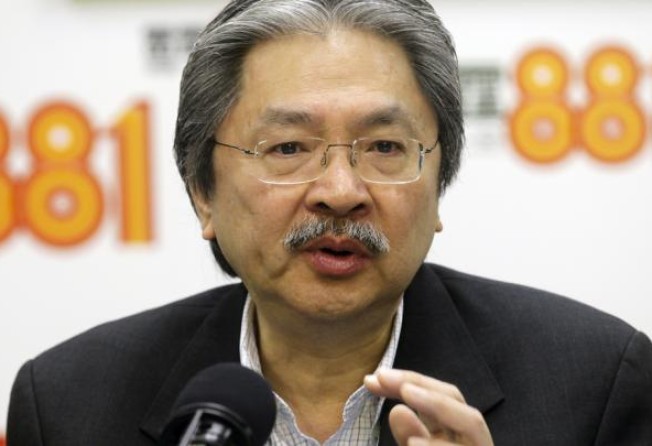Let's stamp out this talk about Hong Kong's narrow tax base
Widening the tax base without an overhaul of the property market will merely impose additional burdens on the city's hard-pressed households

Once again talk is going round in government circles that Hong Kong's tax base is too narrow.
It offends the official mind that fewer than 1.5 million Hongkongers - less than 40 per cent of the city's workforce - contribute to the government's coffers by paying salaries tax.
Officials believe this proportion is far too small. It means the majority of the population only take from the government - especially those who live in publicly subsidised housing - and give nothing back. Unless they can be made to contribute too, by paying tax, they will never be fully engaged members of society.
What's more, the small size of the taxpaying population and the government's reliance on cyclical revenue sources like the salaries and profits taxes mean Hong Kong's public finances are overly exposed to swings in the city's notoriously volatile economy. As the economy turns down, income falls just when the government most needs reliable revenues to fund counter-cyclical stimulus spending.
What Hong Kong needs, believe officials, is an additional source of government revenue that will both broaden the tax-paying base to the population at large and provide a steady income stream in both good times and bad.
Financial Secretary John Tsang Chun-wah indicated as much in his budget speech last month. "With an increase in the number of the elderly, a shrinking working population, reduction in the number of taxpayers and decelerated economic growth, I expect that the growth of government revenue will drop substantially if our tax regime remains unchanged," he said. "Meanwhile, expenditure on welfare and health care will soar. We may not be able to make ends meet."
But he ruled out using the government's vast fiscal reserves to fund future welfare liabilities. "Recurrent expenditure must be funded by sustainable revenue," he insisted. "The government would need to increase revenue if we want to increase expenditure."
The government's favoured solution to its perceived problem is to impose a goods and services tax, slapping a 5 per cent value-added tax on the majority of transactions.
This isn't the first time we've heard this sort of talk. The government tried to introduce just such a GST in 2006, but backed down in the face of fierce popular opposition.
What most people saw straight away, but officials still appear blind to, is that goods and services taxes fall disproportionately on the poor. With a GST, a householder earning HK$10,000 a month who spends all his wages on living expenses is taxed on 100 per cent of his income. In contrast, someone who makes HK$100,000 and spends only HK$50,000 pays tax on only half his earnings.
In a city where the very rich, who take most of their income in the form of dividends and capital gains, pay no personal taxes at all, that is unacceptable.
In any case, the argument that the majority of Hong Kong's population doesn't contribute to the city's public finances simply doesn't stand up to scrutiny.
The government has long operated a high property price policy, drip-feeding building land on to the market to ensure it earns handsome revenues from land premium income and stamp duties on property sales.
The resulting high property prices affect everyone in the city. Whether they buy or rent, people pay more for their housing in order to support the government's revenues.
Even public housing tenants pay. The government's high land price policy pushes up commercial rents, which means retail prices for everything from food to financial services are higher than they otherwise might be. The channel might be indirect, but the net effect is still a transfer of wealth from households to the government. In other words, the government's land policy imposes a tax that everyone in the city already pays.
But officials ignore this. Ultimately the government's property-related income is contributed by the population at large. But because it collects the revenue in the form of income from land sales and land premium payments, the government ring-fences the money, sequestering it in the Capital Works Reserve Fund and insisting it can only be used to finance big infrastructure projects, not its recurrent spending commitments.
This segregation is totally artificial. But it allows John Tsang to claim he cannot dip into the reserves to meet future liabilities, and it permits officials to say Hong Kong needs a new revenue source to broaden the city's dangerously narrow tax base.
It's all rubbish. What Hong Kong really needs is a root and branch reform of its land and tax policies. The two are inseparable. Only then can the city's public finances be set on a firm footing for the coming decades.
Broadening the tax base without a fundamental overhaul of the property market would merely impose an additional burden on the city's already hard-pressed households.